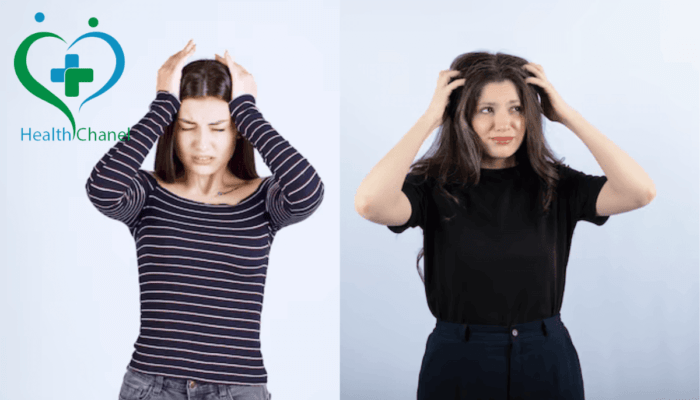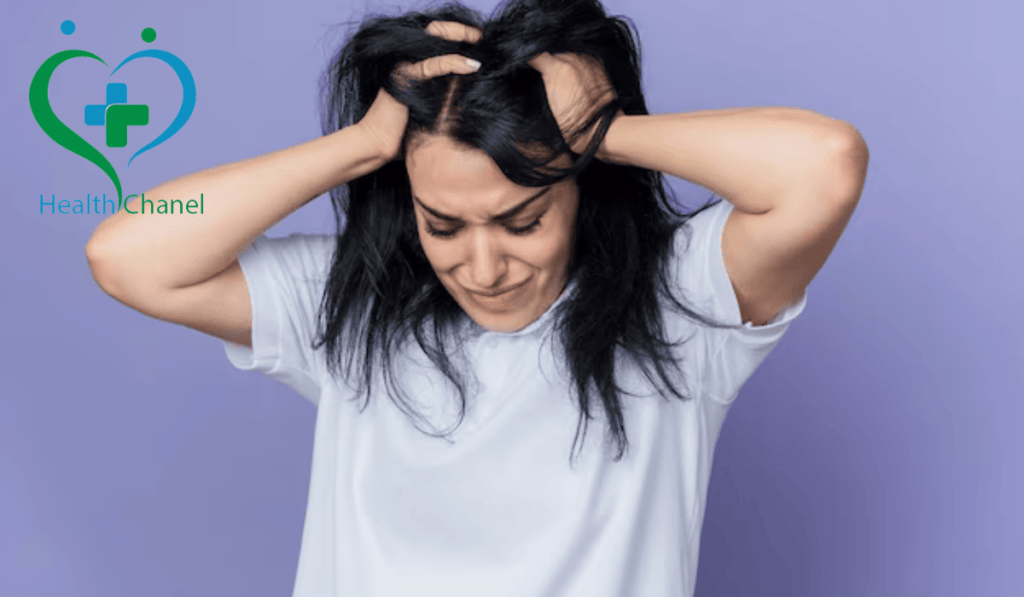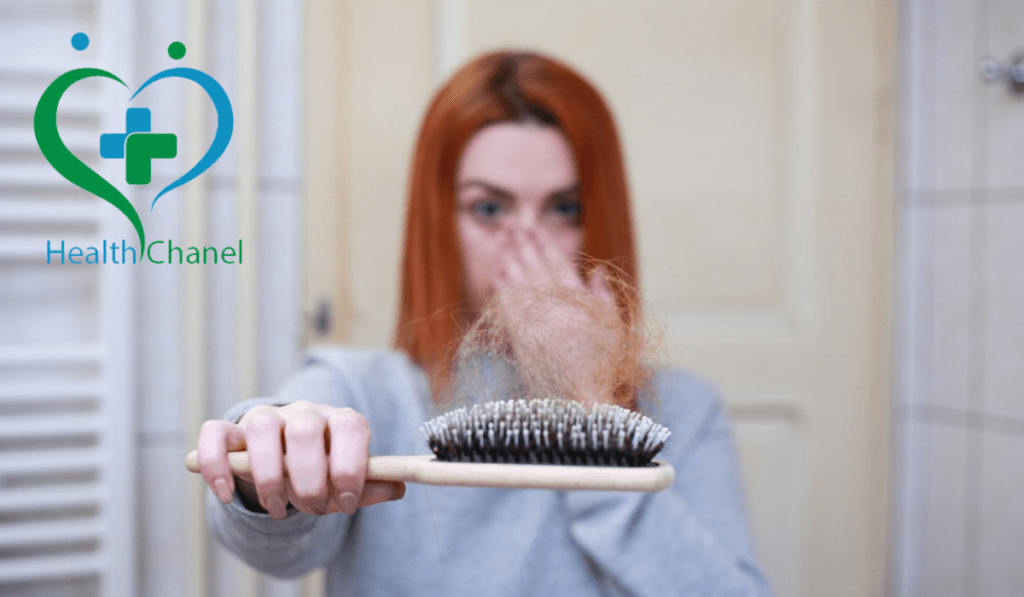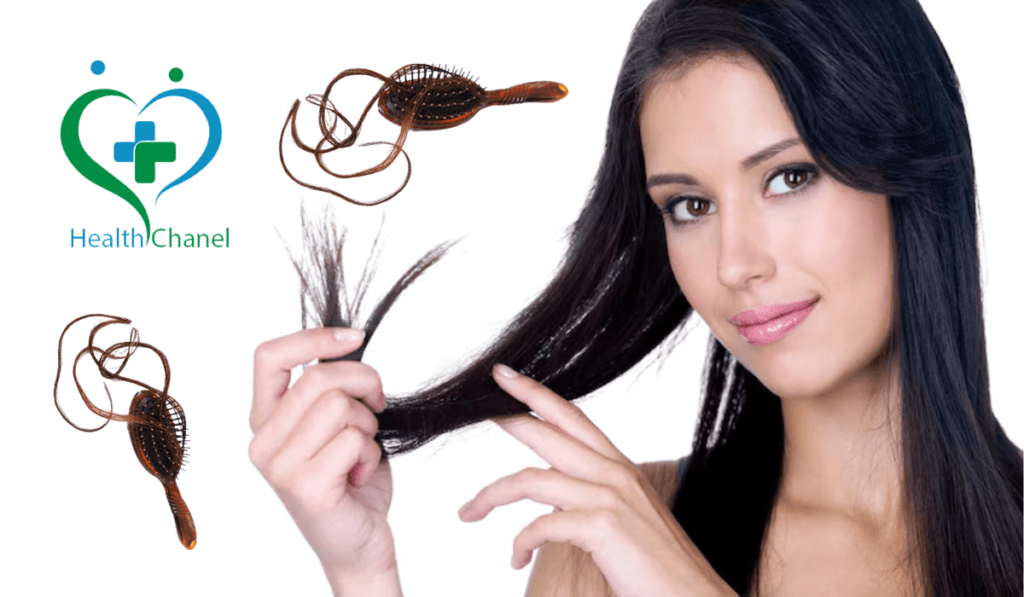Hair loss can feel devastating for any woman. Seeing your strands thin bit by bit…
How to regain hair loss from stress | Symptoms, Vitamins, and Natural treatments

Stress and hair loss female
Stress is a common problem that impacts many aspects of our lives, including our hair health. When we experience stress, our body releases the hormone cortisol, which can result in various physical and emotional signs. In some instances, chronic stress can even result in hair loss from stress in women. This is due to the fact stress can disrupt the natural growth cycle of hair, causing extra strands than normal. That’s why we will discuss about How to regain hair loss from stress.
Moreover, stress can cause scalp inflammation, which can similarly make contributions to hair loss. if you are experiencing stress-related hair loss, it’s essential to cope with the root cause of your stress and take steps to manage it, along with practicing rest techniques, getting everyday exercising, and seeking support from friends, family, or an intellectual fitness expert.
Female hair loss is a complicated issue that could have many special causes, and stress is just one in all them. Different factors can make contributions to hair loss in women including:
- Hormonal changes
- Genetics
- Scientific conditions
- Medicinal drugs
If you are experiencing hair loss, it is essential to speak with a healthcare professional to decide the underlying cause and expand the precise treatment plan on how to regain hair loss from stress. This could involve making lifestyle changes, which include enhancing your diet and reducing stress, in addition to using topical treatments or medications to stimulate hair growth. By way of taking a proactive technique for hair loss, you may assist keep healthy, strong hair and improve your general well-being.
Symptoms
- Stress can cause hair loss, but it affects different people differently.
- Women may experience thinning hair, bald patches, and increased shedding during grooming or washing due to stress-related hair loss.
- They may also notice changes in texture and quality like dryness, brittleness, or lackluster appearance.
- These signs can be disturbing but serve as a reminder to seek professional help and address the underlying stress triggers.
Hair loss due to stress can be temporary or chronic, and recognizing the signs and symptoms is crucial in finding a suitable treatment to prevent further damage. At the first sign of hair changes or hair loss, it is recommended to speak with a healthcare expert or dermatologist for an evaluation on how to regain hair. They may conduct diagnostic tests if necessary and recommend appropriate treatments such as
- Topical solutions
- Medication
- Lifestyle modifications to manage stress levels effectively
By obtaining proper care and attention, healthy hair can be maintained while preventing further hair loss associated with stress.

Hair loss from strain how long does it last
The duration of hair loss due to stress can vary depending on the person’s situation and underlying reasons. In some cases, it may be temporary, resolving itself within a few months. However, more severe cases may persist longer and require extensive treatment. It’s important to note that responses to hair loss can vary widely and are complex. Some individuals find relief through lifestyle changes or medication while others require more targeted interventions.
if you are experiencing hair loss, it is important to talk with a healthcare professional or a dermatologist to assess the underlying reasons and develop the appropriate treatment plan on how to regain hair loss due to stress. They will let you understand the length and severity of your hair loss and propose strategies for handling stress levels and promoting healthy hair growth. By taking a proactive technique and seeking professional guidance, it’s viable to decrease the effect of pressure-associated hair loss and obtain healthy, robust hair over the long term.
Hair loss due to stress can last anywhere from a few months to numerous years, and the duration and severity can also vary depending on the character. Looking for professional assistance and making way of life modifications can help control strain ranges and promote healthy hair Growth, which may additionally help reduce or remove hair loss through the years.
What does hair loss from stress look like?
- Hair loss from stress can take different forms and can vary from person to person.
- In some cases, it is able to cause thinning of the hair or a widening of the part line, which can be noticeable while styling the hair.
- In other cases, hair loss can also take place as bald patches or regions of hair thinning that come to be more outstanding through the years.
- Moreover, some human beings may additionally experience increased hair loss throughout grooming or washing.
It’s crucial to word that the arrival of hair loss from stress can depend upon several factors, along with the
- The severity of the stress
- The man or woman’s typical fitness
- Hair type and texture
While stress-related hair loss can be distressing, it is essential to understand that it can be controlled with appropriate treatment and way of life changes. In search of professional assistance, developing a targeted treatment plan can assist in minimizing the effect of stress-related hair loss and promote healthful hair growth over the long term.

Vitamins
- Nutrients play an essential role in promoting healthy hair growth and managing stress tiers.
- Specifically, certain B vitamins, together with biotin, niacin, and pantothenic acid, are acknowledged to promote hair health and growth.
- Biotin, especially, is a popular complement for improving hair thickness and reducing hair loss.
- Different nutrients that can be beneficial for hair fitness consist of vitamin D, vitamin E, and vitamin C, which can help reduce oxidative stress and irritation within the body.
- It is essential to note that while vitamin supplements can be helpful for helping wholesome hair growth, it’s also critical to maintain a balanced diet that includes a variety of nutrient-dense ingredients to promote average health.
If you are experiencing hair loss, it could be beneficial to consider adding vitamin supplements to your everyday routine. However, it is vital to talk with a healthcare expert or a dermatologist earlier than starting any new supplements to ensure they’re safe and appropriate guides on how to regain hair.
How to regain hair loss from stress naturally?
Natural remedies are available to encourage hair growth and decrease hair loss. One effective way to achieve this naturally is through a healthy and balanced diet rich in essential nutrients such as
- Vitamins
- Minerals
- Leafy vegetables
- Nuts
- Seeds
- Lean proteins
These foods promote healthy hair growth while reducing loss. Additionally, implementing stress-reducing techniques like
- Meditation
- Yoga
- Deep breathing exercises
Into your daily routine can help manage stress levels and encourage healthy hair growth. When it comes to promoting healthy hair growth, adopting nutritional changes and stress management techniques is important.
However, positive natural hair care products can also be beneficial. For instance, using natural oils like
- Coconut oil
- Jojoba oil
- Argon oil
Moisturizes the scalp and nourishes hair follicles. Similarly, opting for natural shampoos and conditioners free from harmful chemicals and sulfates helps maintain a healthy scalp while preventing further hair loss. While these remedies may prove effective in regaining lost hair due to stress, it’s imperative to speak with a healthcare professional. According to individual needs on how to regain hair.

Also, Read More Articles:
Postpartum Hair Loss | Reasons, Nutrients, Domestic Treatment.
Heart Problems in Females: Understanding the Signs of Heart Blockage
Reason Why Women Don’t Get the Same Treatment for Heart Disease as Men?
Heart Problems in Females: Understanding the Signs of Heart Blockage


